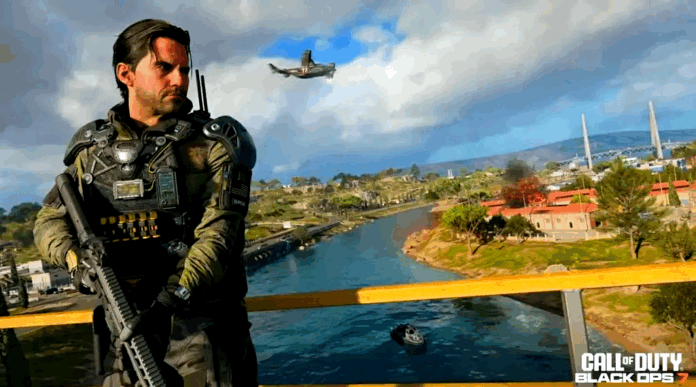When a blockbuster stumbles
Shortly after its release, a dark shadow fell over Call of Duty: Black Ops 7. What was advertised as an opulent action package turned into a prime example of how quickly hype can implode within a matter of days. Screenshots of calling cards suddenly appeared on social media, reminiscent of the overloaded, poorly rendered images that have been flooding the internet for months. Many players immediately recognized the typical aesthetics of those generators, which produce hands with too many fingers or distorted facial contours.
Interestingly, Activision had already been the focus of such accusations in recent years. Even with “Modern Warfare III” and “Black Ops 6,” there were discussions about digitally generated image fragments, which were dismissed with a shrug at the time. This time, however, the form and errors were so obvious that the community reacted unanimously, unlike before.
Black Ops 7 is catching heat for stuffing the game with AI-generated art!
Fans found dozens of Calling Cards made with AI instead of real artists — including Ghibli-style images like the “Reeled In” card.
Players say most of it isn’t even creative, just generic AI output. pic.twitter.com/gQGzXWq4Bl
— Play4Index (@Play4Index) November 14, 2025
The criticism quickly turned to outrage. Users reported calling cards that not only looked generic, but allegedly even featured familiar patterns from popular AI models. Comparisons to Studio Ghibli imitations generated by various creative tools a few months ago circulated in forums. The general consensus: “This doesn’t belong in a AAA game.”
“Like so many in the world…” – The statement that made everything worse
Only after players increasingly demanded refunds on Steam – some even after completing the co-op campaign – did Activision respond. In an official statement, the publisher explained: “Like so many in the world, we use digital tools, including AI, to support our teams. Our creative process remains in the hands of our talented employees.”
But instead of calming things down, this statement only caused further unrest. Many felt the wording went too far, while others felt it didn’t go far enough. In particular, the reference to a “human-led process” raised doubts about how large the AI component actually is. Players felt blindsided, some even deceived, as the assets in question had not been mentioned in any marketing phase.
Support continues to crumble. Community posts speak of declining confidence in large-scale productions, while some hope that the pressure will lead to clearer transparency rules in the industry in the long term. One thing is certain: “Black Ops 7” will be remembered not only for its gameplay, but also for its cultural and historical significance – as an example of a game that failed more than just because of performance issues.


